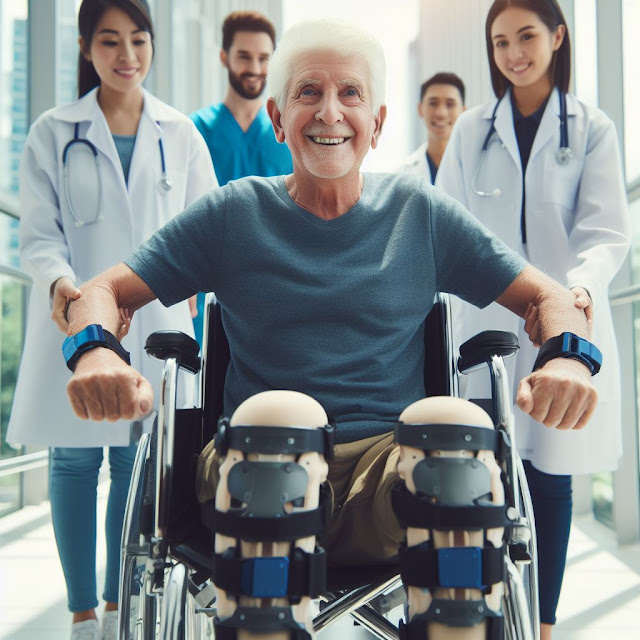Stroke Rehabilitation Advancements Through Robotics
 |
| Image Credit AI generated |
Researchers at the University of Southern California (USC) have developed an advanced robotic system for evaluating stroke survivors' progress in medical rehabilitation. The system combines a robotic arm and a socially assistive robot to measure arm and hand mobility, addressing the common issue of "arm non-use" in stroke patients. This collaborative effort integrates expertise from computer science, biokinesiology, and physical therapy, resulting in a precise system that collects three-dimensional spatial data on patients' arm movements.
Noteworthy features include the integration of machine learning for nuanced progress assessment and the use of a socially assistive robot for patient motivation. A study involving 14 stroke patients demonstrated the system's effectiveness in analyzing arm use probability, reach time, and success in hitting targets. Participants found the system easy to use and secure, with data analysis revealing considerable variability among chronic stroke survivors.
Looking forward, USC researchers plan to expand the system's capabilities, including integrating facial expressions for a more comprehensive view of patients' states. The team aims to personalize assessment sessions by mimicking daily activities, potentially speeding up recovery. While the system is currently in the laboratory phase with no commercial product, its future applications have the potential to transform stroke rehabilitation, offering a tailored approach and reducing the burden on therapists.

.jpg)

Comments
Post a Comment